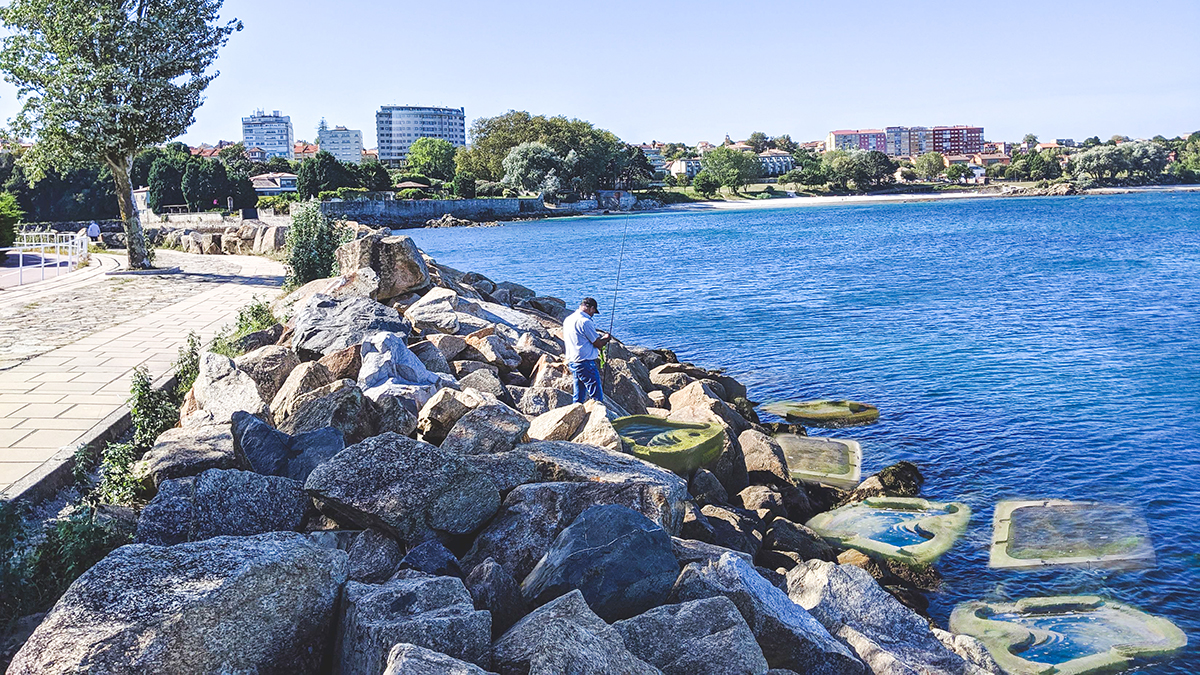
Engineering firm ECOncrete® has received an award under the European Commission Horizon 2020 Fast Track to Innovation funding programme in relation to a large-scale deployment at the Port of Vigo, Galicia, Spain.
De-risking and scaling of environmentally-sensitive industrialisation projects is an urgent priority, and one that is said to line up with the EU Green Deal, Marine Directive and Biodiversity Strategy for 2030. The “Living Ports” project is – as ECOncrete puts it – “designed to catalyse a fundamental change in the Coastal and Marine Infrastructure (CMI) industry’s operations by shifting away from obsolete ‘grey’ construction and towards nature-inclusive infrastructure with structural, environmental and socio-economic co-benefits.”
The consortium comprises four partners: ECOncrete Tech, an Israeli SME offering ecological CMI solutions; the Port of Vigo, said to be one of Europe’s greenest ports; Cariama Shipyard, a Spanish shipbuilding and ship repair company; Technical University of Denmark (DTU) Civil Engineering and Aquatic Resources Institutes.
Living Ports will include two large-scale demonstration sites:
1) A 310m² ECOncrete sea wall and an underwater monitoring and community outreach deck developed by Cardama Shipyard. The floating deck will be supported by five ECOncrete bio-enhancing moorings.
2) 100 ECOncrete Tide Pool Armour units and ECO Armour Block units will provide “coastal stabilisation as well as habitat creation and ecological uplift”.
During the three-year project (2021-2024), biological and structural monitoring will be led by DTU. An Italian expert team will conduct seemingly first-of-a-kind noise pollution reduction monitoring, associated with enhanced marine growth on ECOncrete’s units.
“ECOncrete is enabling a revolution for marine ports, providing the tools to shift from focusing only on function and structural performance, to also focusing on benefitting the marine environment,” said ECOncrete’s co-founder, CEO, and project coordinator, Dr. Ido Sella. “Living Ports will be an iconic example for nature-inclusive port infrastructure: an active waterfront that also serves as a thriving habitat and a community focal point.”
Port of Vigo’s project coordinators commented: “Port of Vigo is considered a reference green port in Europe with a very active policy in environmental protection. Thus, it has recently committed to reach zero carbon emissions in 2030. The Living Ports project fits within its strategy, being part of an integral programme of actions called ‘Sunset Dock’. This programme is focused on the improvement of the port ecosystem.”
Wolfgang Kunther (Assoc. Prof., DTU Byg) and Jon C. Svendsen (Senior Researcher, DTU Aqua) commented: “With the Living Ports project, DTU and their international collaborators are at the forefront of future harbour developments. The project creates the tools and documentation for next generation harbours that not only provide crucial infrastructure, but also become vital living spaces for a wide range of marine organisms. In the Living Ports project, two DTU institutes, Civil engineering and Aquatic Resources, are joining efforts with their partners to reveal the benefits of concrete structures that are designed to support life.”







